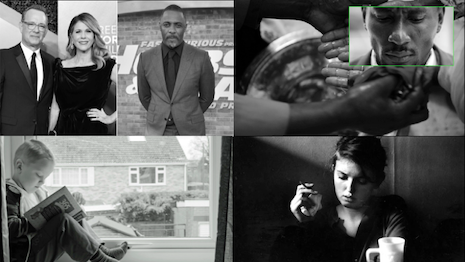 Actors Tom Hanks and wife Rita Wilson, as well as Idris Elba contracted COVID-19. but recovered quickly. The pandemic and the resultant lockdowns have taken an emotional toll on populations worldwide in addition to the fear of the virus itself
Actors Tom Hanks and wife Rita Wilson, as well as Idris Elba contracted COVID-19. but recovered quickly. The pandemic and the resultant lockdowns have taken an emotional toll on populations worldwide in addition to the fear of the virus itself
We are going through multiple, legitimate, very real emotional phases of adjusting to new realities. It is the speed of change and the duration and the once-stable ground we trusted in that is causing our emotional whiplash.
And, around the world, so it is for customers, too.
Bringing the real thing – empathy, grace, gratitude and hope – is what people need, even if not asked for.
Families and our friends bring it for each other. Trusted organizations need to be right there, too, especially as industries work up, down and upside down through these core phases.
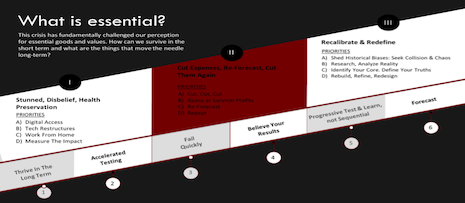 What is essential?
What is essential?
This COVID-19 coronavirus crisis has fundamentally challenged our perception for essential goods and values. How can we survive in the short term and what are the things that drive tomorrow and next year, the long-term potential?
In a time of crisis, particularly one that is sustained, hope is something that must be present for a population to right itself, to get out of its spiral. There are plenty of historical references.
In 4 percent U.S. unemployment times, hope got laughed out of the room in board and investor meetings. At a likely 25 percent in the next reported figures, and higher globally, there is an urgent call for businesses to jump to Stage III.
Even for those that have somehow thrived, the time for this kind of stark assessment and planning must be now. Re-imagining and redefining the future is the only way to survive.
Especially for luxury, these phases reveal a stark truth that typically only shows up once the human spirit has been challenged across every aspect of its humanity.
I say it like it like this because there is then nowhere to hide.
Even the elite doomsday preppers, tucked into saferoom bunkers in New Zealand, cannot escape this new reality. And, it will continue to sustain, vaccine be damned.
Bill and Melinda Gates’ bold, calm, and clear-headed approach and advice in the paper, ‘The First Modern Pandemic’, should become our playbook.
Luxury gets cast about as trivial “things” and “experiences,” superfluous purchases only the super wealthy can afford. But step back with our newly worn-in, unsettled, honest perspective – we see that it is not that at all.
Certainly, Mses. Mellon, McCartney and Quinn and Messrs. Arnault, Pinault and Louboutin, would not have bet their businesses on such flimsy sentiment. No way. So, what is it, then?
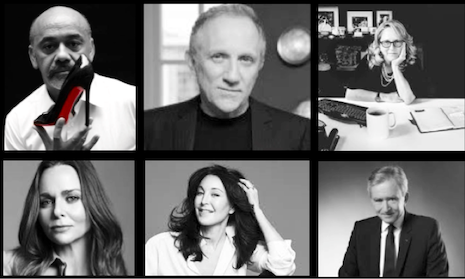 Great and good of luxury leadership
Great and good of luxury leadership
I would suggest that it is that elusive, exclusive feeling that comes with connecting to something that can actually change our lives or, at the least, our sense of self and being.
Through an almost chemical and cellular reaction, we are able to visualize, nay, crave, something that advances our own viability as self. True, for even Dr. Maslow, the infamous self-actualization theorist.
So, if this is what has been underlying its 20 years-plus progressive growth, luxury is as “essential” as non-luxury. It is not primal as are our physiological needs, obviously. We cannot eat a handbag, watch, or a climb up Meru, but everyone has sometimes crippling self-esteem – recognition, approval – and social needs.
Discovering what is essential is extremely difficult work, and will be particularly for luxury. It is not obvious, on a first look. Uncovering it requires research, polling customers, digging into historical data, pressure testing different scenarios and combinations to discover it.
Most luxury brands, during the first phase I – “Stunned, Disbelief, Self and Family Preservation” – reacted honestly and allowed themselves to be vulnerable, using unscripted video and social messaging to connect.
Literally and figuratively, turning the mic around and talking from the heart happened genuinely. And, data supports how overwhelmed we all were just to connect with our favorite brands or just the stalwarts with whom we grew up. It was calming, even inspiring.
The behemoth brands continued down this path. Many were quick, though, to turn back to their commercial needs within a few weeks. People, consumers, are punishing them for it.
The latest Harris Polls indicate that 25 percent feel that ads are contrived, unauthentic and forced. It is complex to figure out the timing of what is appropriate, when and, unfortunately, historical references such as 9/11, hurricanes and terrorism strikes have not been useful comparables.
But there are fantastic examples of companies who are serving their economic realities at the same time that they are keeping the long view as their sextant to guide them. And, they kept the defining pillars of quality, craftsmanship, design, attention to detail, uniqueness and authenticity in a front-row seat.
Smaller brands such as Lafayette148, NYC and China women’s luxury apparel provider Brandon Maxwell, Alexander McQueen, Bamford Watches, Killian Perfumes and many others are connecting emotionally, telling stories, not losing their brand voices, contributing what they can to support local and global relief and, at the same time, aggressively offering incentives and discounts to retain that trust and, of course, drive top-line revenues.
Large fashion houses such as Ralph Lauren, and the entire Lauren family, have done a remarkable job of integrating their brand into their stories without losing sensitive and honest connection with customers.
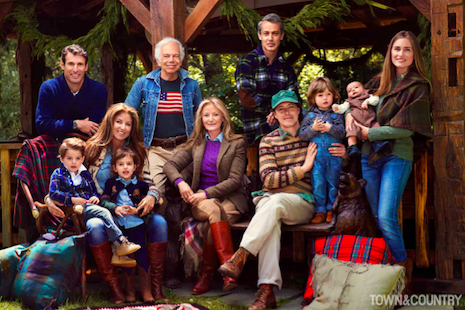 Fashion designer Ralph Lauren and his family personify the lifestyle that his company promotes. Image credit: Town & Country
Fashion designer Ralph Lauren and his family personify the lifestyle that his company promotes. Image credit: Town & Country
Travel, lodging, restaurants and the auto industries are still struggling in Phases I and II, with no near-term signs of abatement, which is making it so challenging even to survive.
With the global markets and economies being the luxury market’s core strength, plus the early days of China and other Asian countries following the science to carefully re-open, a moderate forecast could leave the industry with a very difficult 15-25 percent full-year decline.
In Bain & Company’s “Luxury After COVID-19” report, it indicates that for the United States, Europe and Japan “any meaningful recovery would not be felt until 2021 and likely not until 2nd half.”
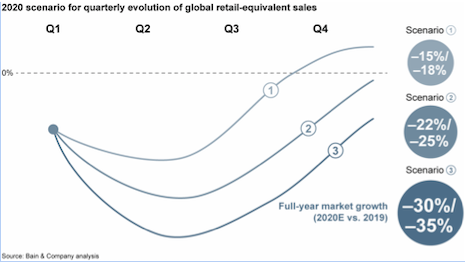 Bain & Company's projections for luxury shortfall this year. Source: Bain & Company
Bain & Company's projections for luxury shortfall this year. Source: Bain & Company
The historical evidence is clear that the luxury market is durable with a wide, global base to lean on as world’s economies get taken off life support.
COVID-19 has certainly decimated the possibility for so many to purchase what they love and crave. The future has changed, this we know. But we also know that people want inspiration and to connect with their passions, as long as they are safe to do so. That is what luxury provides.
Dr. Maslow posited that these are, in fact, exactly that – needs – which is why our consuming lives are so critical. Elon Musk’s decision to bring even more devoutness to his personal mission and selling off his real estate is establishing a new luxury position: one without distraction to achieve his singular mission: “Freedom.”
Without rewards and recognition, in any form, we are not validated or satisfied or consoled.
So, this last phase, “Recalibrate, Redefine, Re-Imagine Your Future,” is to reset potential.
The hope is what keeps us tuned into possibility. It is what enables us to actually five-sense experience it. And, none can say they have not touched by all of them. But it is also where organizations of any kind, business or otherwise, must pause and let go of what was, even what is now, so that a new design can emerge.
THERE IS A very small margin of time, patience, and money, to do the work necessary. But to reset a profitable future and, more importantly, provide for what is essential in product, service and mission, we must realize that this is our Why. Our Truth. The Core.
I would say, it is actually our divinity.
In that context, then, luxury is a necessity, a need, and an “essential.”
The future is coming soon.
There is not a minute to waste.
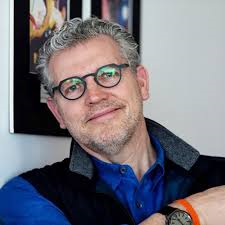 Chris Paradysz
Chris Paradysz
Chris Paradysz is managing partner of The Advisory Labs, New York. Reach him at chrisparadysz@theadvisorylabs.com.